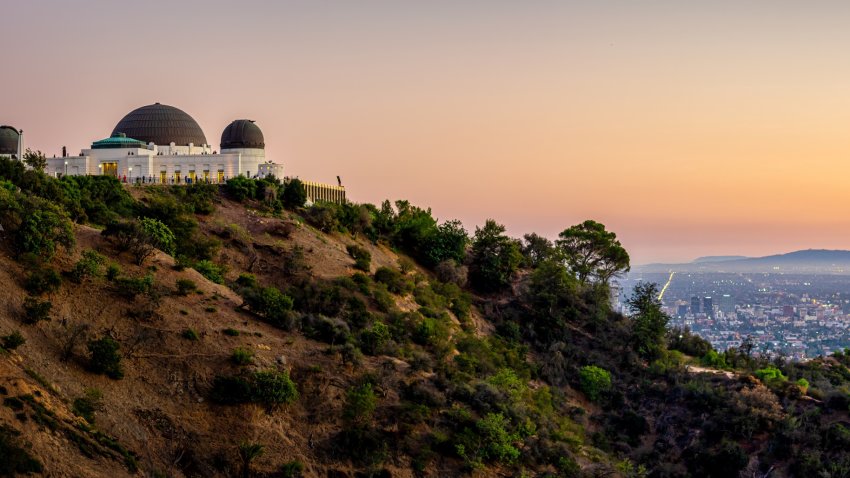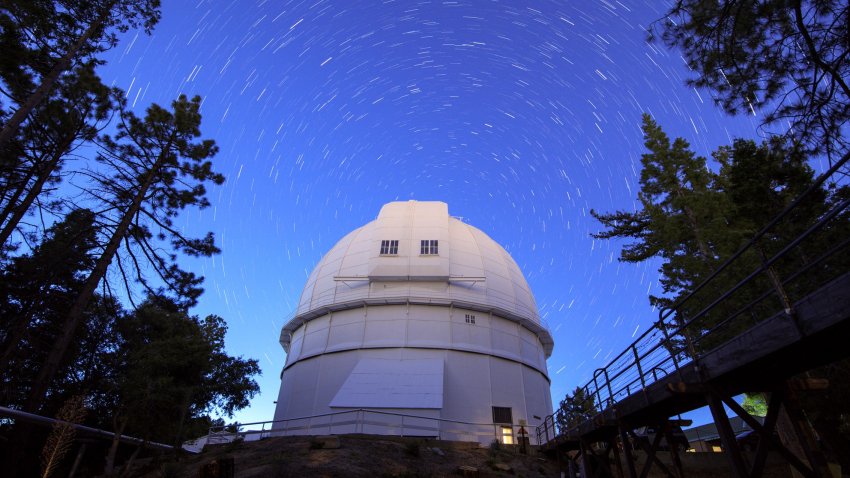-

Take a closer look into your January astrology forecast…
California Live’s Jessica Vilchis gets a sneak peek into our January astrology forecast with astrologer and author, Stephanie Campos.
-

Northern lights may be visible in some states on New Year's Eve
Stargazers may catch a glimpse of colorful auroras in several northern states on Monday and Tuesday.
-

The moon may be more than 100 million years older than previously thought, study finds
The moon may be more than 100 million years older than some scientists previously thought, according to a new study.
-

Griffith Observatory will shine a light on the moon's ‘Standstill' moment
An observatory livestream will track an event 18.6 years in the making.
-

How to catch the Geminids, one of the strongest meteor showers of the year
The Geminids are among the few major meteor showers to come from asteroids, and this year they will peak on Friday.
-

Earth bids farewell to its temporary ‘mini moon' that is possibly a chunk of our actual moon
Earth is parting company with an asteroid that’s been tagging along as a “mini moon” for the past two months.
-

See the Beaver Moon Friday night, the last supermoon of 2024
Astronomers say better catch this week’s supermoon. It will be a while until the next one.
-

October's supermoon pairs with a once-in-a-lifetime comet for rare nighttime spectacle
The Tsuchinshan-Atlas comet is still in the neighborhood and will wow stargazers in the North Hemisphere after making an appearance in the Southern Hemisphere over the weekend.
-

A rare comet will brighten the night skies in October
A rare, bright comet will be visible in October, clear skies permitting. The comet will make its closest approach to Earth on Saturday.
-

Earth will have a temporary ‘mini moon' for two months
Earth will have a temporary “mini moon” for two months. The mini moon is actually an asteroid about the size of a school bus.
-

A ‘Cosmic Art Night' will shimmer at Mount Wilson Observatory
A chance to stargaze via the 100-inch telescope is part of the ethereal event.
-

How to watch Tuesday's Harvest supermoon with a partial lunar eclipse
No special eye protection is needed to view a lunar eclipse. Viewers can stare at the moon with the naked eye or opt for binoculars and telescopes to get a closer look.
-

Catch a partial lunar eclipse during September's supermoon
Get ready for a partial lunar eclipse and supermoon. The spectacle will be visible in clear skies across North and South America Tuesday night and in Africa and Europe Wednesday morning. A partial lunar eclipse happens when the Earth passes between the sun and moon, casting a shadow that darkens a sliver of the moon. Since the moon will inch...
-

Here's how to watch a quartet of supermoons this year
The first of four supermoons this year rises next week and stargazers could catch a moon that can be 30% brighter than average.
-

August's supermoon kicks off four months of lunar spectacles. Here's how to watch
The first of four supermoons this year is about to rise. Stargazers can catch the first act Monday as the full moon inches a little closer than usual, making it appear slightly bigger and brighter in the night sky.
-

Here's what August has in store for your zodiac sign, according to an astrologer
California Live’s Laila Muhammad chats with astrologer Stephanie Campos about what the stars have in store for the month of August. The first half is a little rocky, but there are also some sweet cosmic surprises by the end of the month.
-

Mars and Jupiter get chummy in the night sky. The planets won't get this close again until 2033
Mars and Jupiter are cozying up in the night sky for their closest rendezvous this decade.
-

The Perseids are here. Here's how to see the ‘fireballs' of summer's brightest meteor shower
The Perseid meteor shower reaches its peak early Monday. Astronomers say it’s one of the brightest and most easily visible showers of the year.
-

Be dazzled by starlight and sequoias at the Dark Sky Festival
The astronomical event will feature “engaging educational presentations” and popular star parties.
-

Rare double meteor shower event to peak on Tuesday
The Southern Delta Aquariid and the Alpha Capricornid meteor showers will both reach their peak on Tuesday. Here’s what you need to know about the shooting star event.

